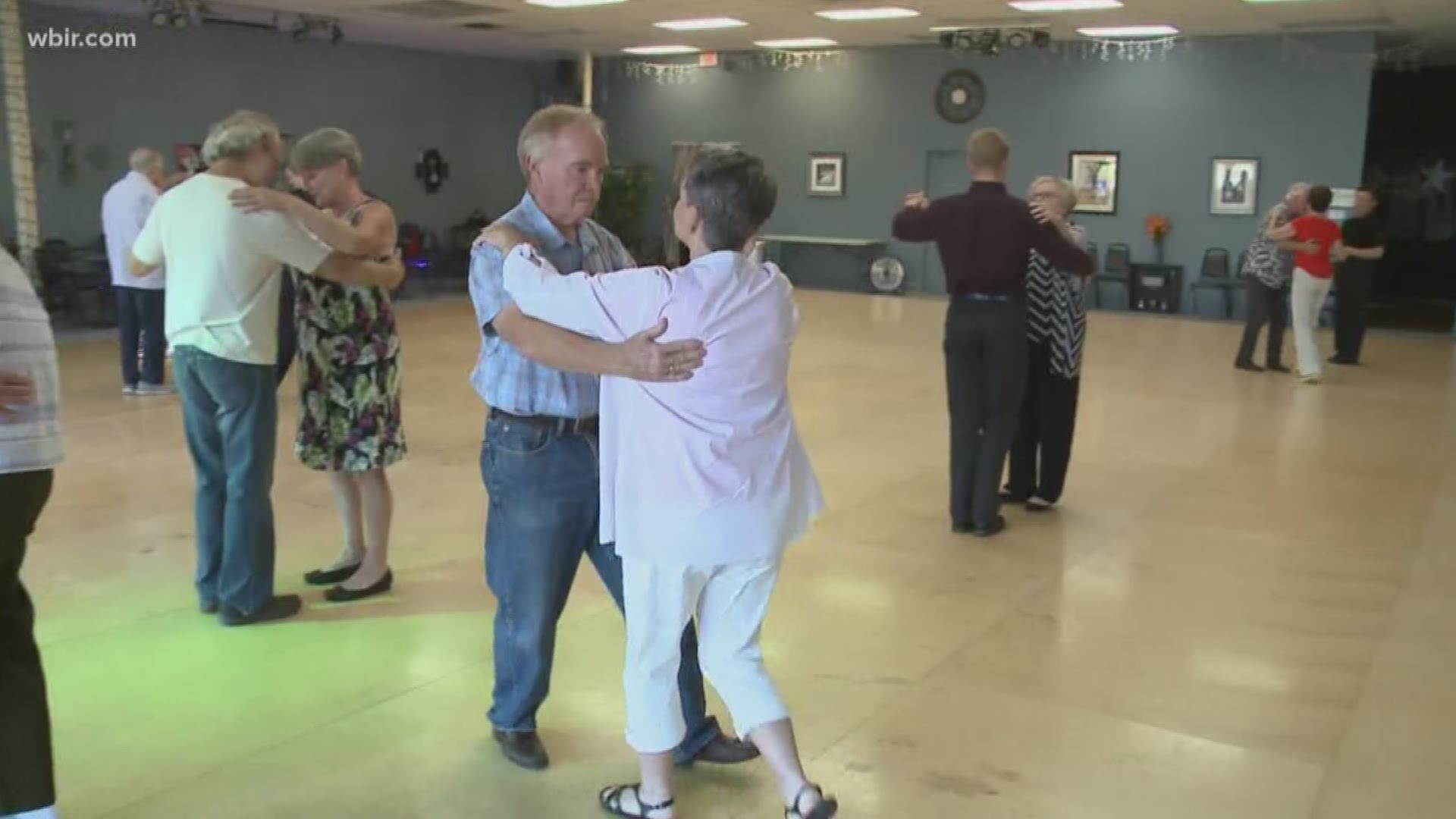For the first time in Knoxville, the Alzheimer's Association and a Parkinson's support group have formally come together to help their members. It's a partnership in dance.
A class meets once a week at a studio in West Knoxville.
People put down their canes and pick up their feet to take a spin on the dance floor at Dance Tonight Knoxville.
It's not that different from a regular beginner class. But the therapeutic ballroom dance class is tailored for students like Ruth Johnsen who was diagnosed with Parkinson's disease about nine years ago.
"It's been fairly slow but lately, probably the last few months it's gotten a little bit worse," she said.
For Ruth, it mostly affects sitting and walking. But at the dance class she leaves her rollator behind to rumba and waltz and laugh, and laugh, and laugh.
"I don't dance. Neither does he. So we thought we would just give it a shot," she said.
Her husband, Wayne Johnsen, had seen videos of dance classes for people with Parkinson's.
"Quite impressed with what it can do to liberate people from their Parkinson's during the time of dance," Wayne said.
"There was some new research and it showed dancing combines all the components like balance, coordination, and of course the social activity that people can come out and have fun," Isabell Senft-Daniel said.
She started the PJ Parkinson's Support Group of Blount County. A lot of the people at the dance class are members. Their support group is social, but serious, focusing on medicine, research, and exercise.
Dance is different.
"Forget all the things about the day and the disease. Go out and have fun," she said.
Parkinson's patients and Alzheimer's patients attend the class. It's a natural fit because people with Parkinson's can develop dementia in the later stages of the disease.
Research shows dancing may help with symptoms.
Repetition and routines can stimulate memory. The students concentrate on remembering the steps. Dance improves flexibility and balance. And it's a means of non-verbal expression for everybody on the dance floor.
September 22 they are having a ball and the public is invited to watch or dance. That's at Dance Tonight Knoxville.
For more information about the Alzheimer's Association and the care and support services provided here in East Tennessee, please call 800-272-3900 or visit alz.org.

